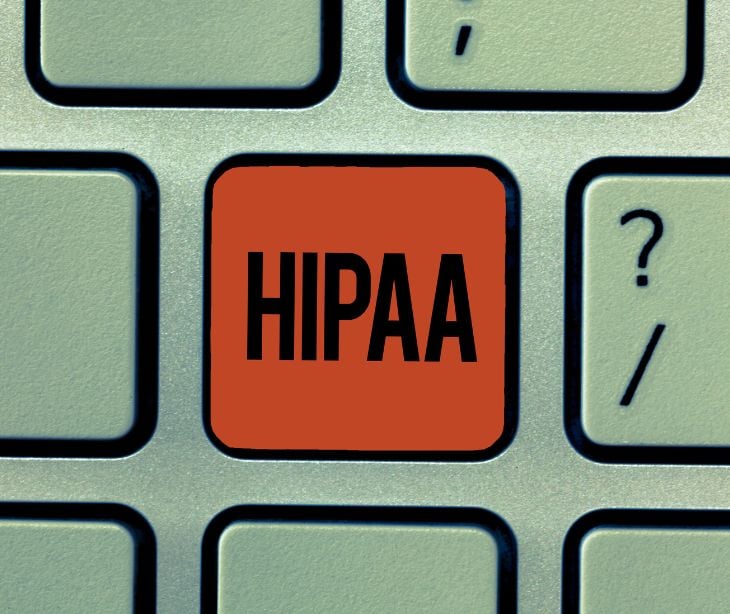2 min read
Using HIPAA compliant email in continuing medical education (CME)
Liyanda Tembani
May 13, 2024

HIPAA compliant email can be a secure communication tool for continuing medical education (CME), enabling healthcare professionals to exchange course information, registration details, and training reminders without risking the disclosure of protected health information (PHI). Through encryption protocols and access controls, HIPAA compliant email platforms ensure the confidentiality of CME-related communication and promote seamless collaboration and knowledge sharing among healthcare professionals, educators, and CME providers.
The importance of secure communication in CME
Effective communication in CME allows healthcare professionals to collaborate and stay updated. Traditional email platforms often lack adequate security measures, posing risks to patient data confidentiality and violating HIPAA regulations. The HHS clarifies that "The Privacy Rule allows covered health care providers to communicate electronically, such as through e-mail, with their patients, provided they apply reasonable safeguards when doing so. " Prioritizing HIPAA compliant email communication therefore protects patient privacy and complies with these HIPAA requirements.
The role of HIPAA compliant email in CME
HIPAA compliant email offers a secure solution for communication in CME. Healthcare professionals can securely exchange CME-related information without risking the exposure of PHI when using these platforms. Designed to meet HIPAA's strict security and privacy standards, they employ encryption protocols and access controls to protect sensitive data. Additionally, HIPAA compliant email streamlines communication among healthcare professionals, educators, and CME providers, promoting collaboration and knowledge sharing. Whether sharing course details, registration information, or training reminders, HIPAA compliant email ensures confidentiality while adhering to regulatory requirements.
Related: Features to look for in a HIPAA compliant email service provider
Using HIPAA compliant email in CME
- Use secure password protocols: Implement strong password protocols to safeguard access to email accounts. This includes using complex passwords. Additionally, enabling multi-factor authentication (MFA) where available can add an extra layer of security to email account access.
- Regular training on HIPAA compliance: Provide staff with regular training on HIPAA compliance and secure communication practices to enhance awareness and understanding of regulatory requirements.
- Enhance awareness of secure communication practices: Encourage staff to be vigilant about protecting patient privacy and promptly report any potential security breaches or violations.
- Incorporate best practices into workflows: Integrate HIPAA compliant email best practices into organizational workflows and policies to ensure consistent adherence to regulatory standards. Developing guidelines and protocols specifically tailored to using HIPAA compliant email for CME activities outlines expectations for staff behavior and communication practices.
- Use encrypted attachments: When sending attachments containing sensitive information, such as presentation slides or documents related to CME activities, ensure encryption to protect the data from unauthorized access during transmission.
- Be mindful of email recipients: Exercise caution when selecting email recipients to ensure that only authorized individuals have access to CME-related information. Avoid sending emails to distribution lists or groups that include individuals who do not need to be privy to the information.
- Provide secure file-sharing alternatives: In instances where email may not be the most secure method for sharing large files or multimedia content related to CME activities, consider providing alternative secure file-sharing platforms that comply with HIPAA regulations.
FAQs
Is it necessary to obtain patient consent before sending CME-related emails?
While patient consent is not typically required for general CME communications, ensure that emails do not contain any patient-specific information to uphold patient privacy and comply with HIPAA regulations.
What should I do if I accidentally include PHI in an email related to CME?
If PHI is inadvertently included in an email, promptly notify the appropriate individuals, such as your organization's HIPAA compliance officer, and follow established procedures for reporting and addressing potential breaches of patient confidentiality.
Can text messaging be used to communicate with patients about CME-related matters?
When using HIPAA compliant text messaging platforms, you can communicate with patients about CME-related matters, provided that patient consent is obtained and clear guidelines for communication are established to mitigate the risk of unauthorized disclosure of PHI.
Subscribe to Paubox Weekly
Every Friday we'll bring you the most important news from Paubox. Our aim is to make you smarter, faster.



